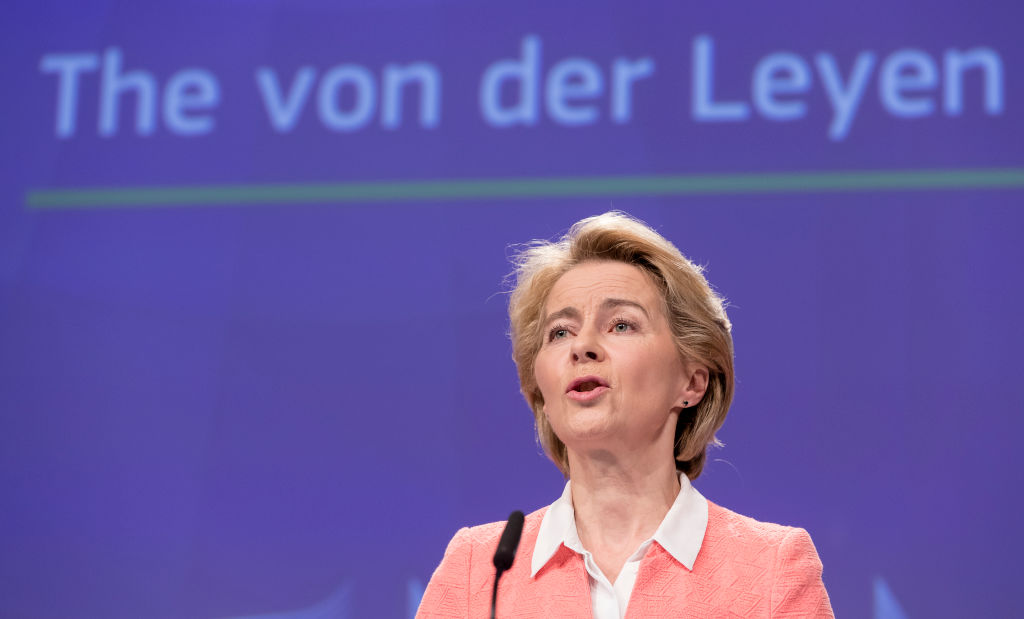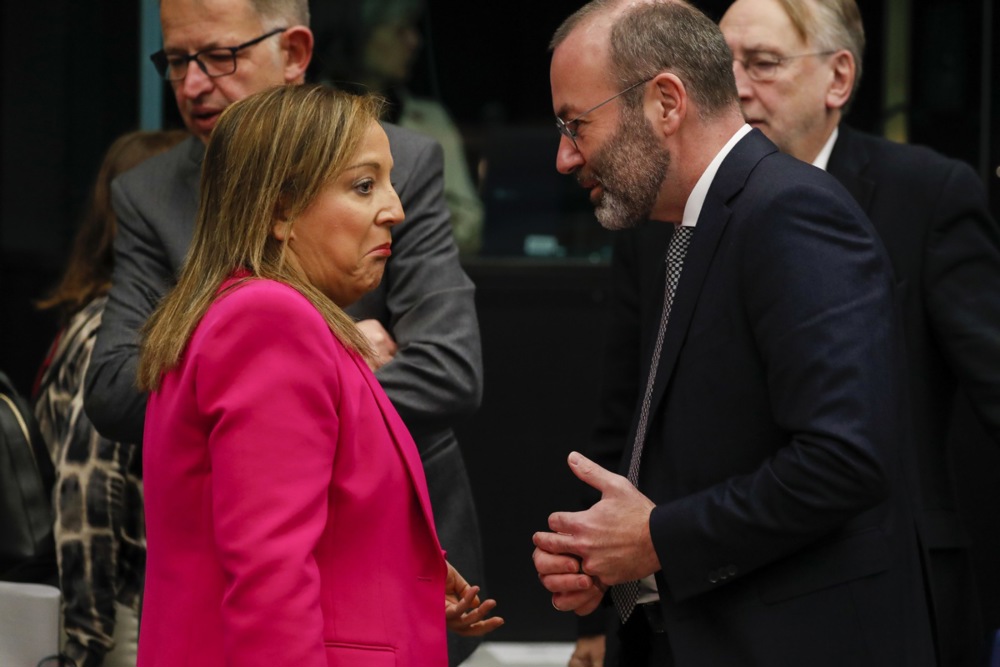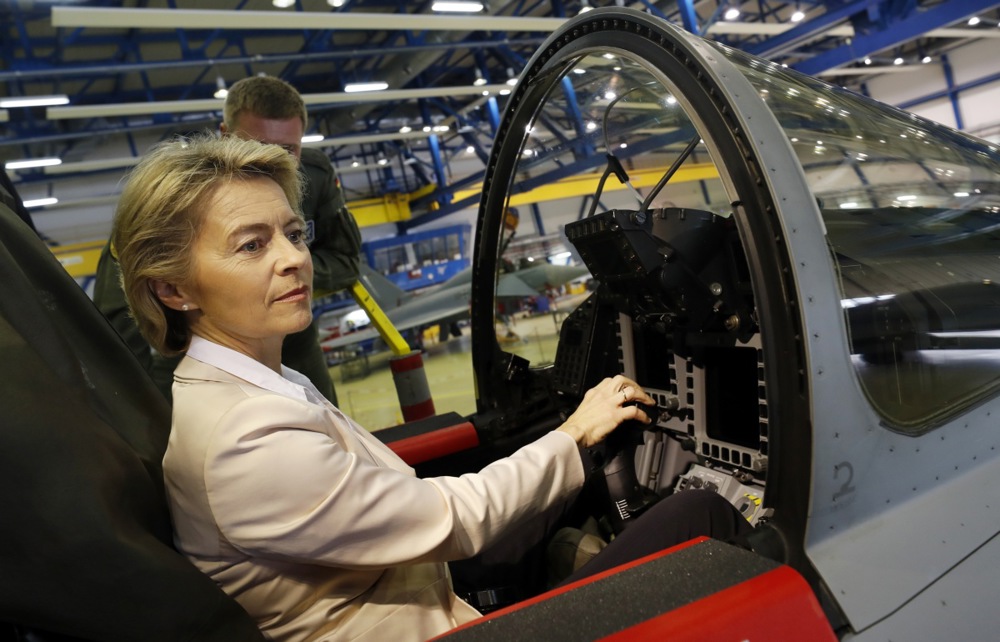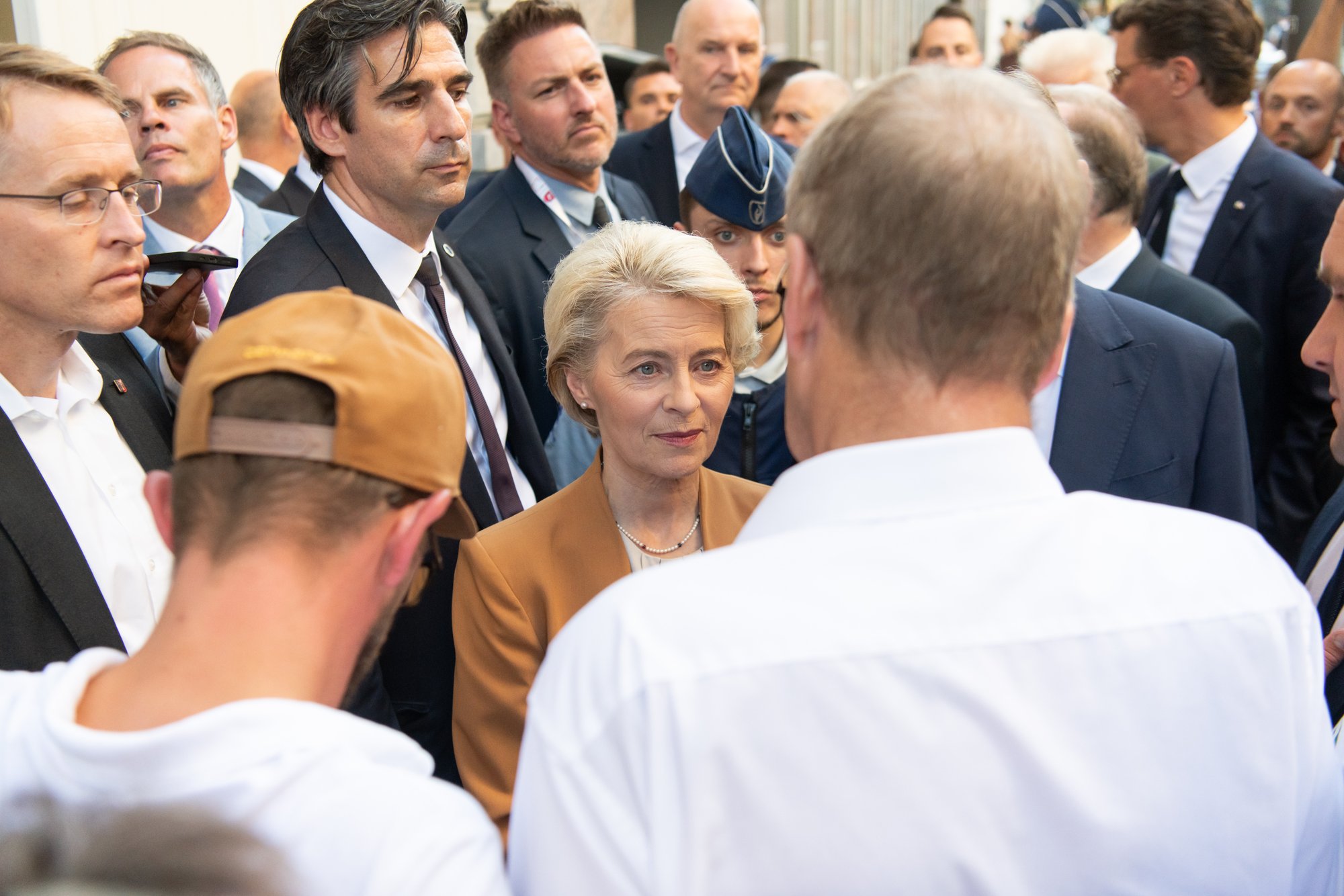Ursula von der Leyen’s Green Deal looks set to be diluted, with the agricultural lobby pushing key elements back until after May 2024’s EU elections.
Areas likely to be watered down include the Nature Restoration Law, which the Commission and the Council of Ministers are now negotiating, and rules on sustainable food production and animal welfare.
The Commission is also exploring lowering businesses’ reporting requirements, and offering them targeted support through permits, subsidies, and incentives.
“Make no mistake, the agricultural lobby is a big deal,” Eliot Whittington, who researches climate change policy at Cambridge University in the UK, tells Brussels Signal in an interview.
Due to its focussed opposition, on food and agriculture “a lot of the planned work here has been put off to the next legislative cycle,” he says.
Food and farm policy represents the chief areas where the Green Deal has now stalled.
Ursula von der Leyen will focus on her victories from “hard fought battles” that include reforming the European Trading System for carbon credits and banning combustion engines in cars and vans, says Whittington.
These wins will make it easier for her to accept delays to or the watering down of the Green Deal’s other areas, he says.
Within the European Parliament, pressure to pause the Green Deal is strongest from the European People’s Party (EPP), the body’s largest group.
It called in June for a “regulatory moratorium” on the Green Deal.
Helping boost industries’ “absorption capacity” to decarbonise further should now form the basis of the EU green agenda, says the EPP.
Businesses argue they struggle with weak demand and rising energy costs. The auto industry faces a de facto ban on new combustion engines after 2035.
However, companies which have already invested in green technologies, such as steel producers that now use direct reduced iron, will find their profitability jeopardised by a broad rollback of the green agenda.
If standards are relaxed, their prices would be undercut by more polluting competitors.
France’s President Macron has echoed calls for a “regulatory pause” to help businesses digest the new EU standards.
Some are putting a brave face on postponing elements of the Green Deal.
The regulatory pause could represent “an opportunity to fine-tune regulations to better reflect the needs of businesses, harmonising environmental care with profits,” says Sofia Fominova, cofounder of sustainability startup Net0.
Considering the agriculture sector’s needs is “crucial in shaping equitable and pragmatic regulations,” she adds.
The Green Deal and von der Leyen both face uncertain futures after the vote.
Green MEPs are set, according to recent polls, to be among the election’s main losers, with their seat tally projected to fall from 74 to 46 seats.
Europe has seen a broad pushback in recent weeks against green parties, as issues like migration and terrorism come to the fore.
Greens lost five seats each in 8 October’s Luxembourg elections and 22 October’s in Switzerland, and fared badly in Germany’s 8 October state elections.
Von der Leyen struck a humbler note towards both industry and farmers in her September State of the EU speech.
Supporting industry is the “next phase of the European Green Deal”, while moving toward sustainable agriculture will take “more dialogue and less polarisation”, she says.
Within the scope remaining in this Parliament and Commission, the main area of business “that still needs to be agreed is around buildings’ energy efficiency, the Energy Performance of Buildings Directive (EBPD)”, says Whittington.
“If we resolve that then we’ve basically got a significant and major new legislative framework aiming to decarbonise the EU economy,” he says.
The new legislative framework is “flawed and limited in places of course,” with food and agriculture the chief drawbacks, “but still a huge achievement,” says Whittington.





